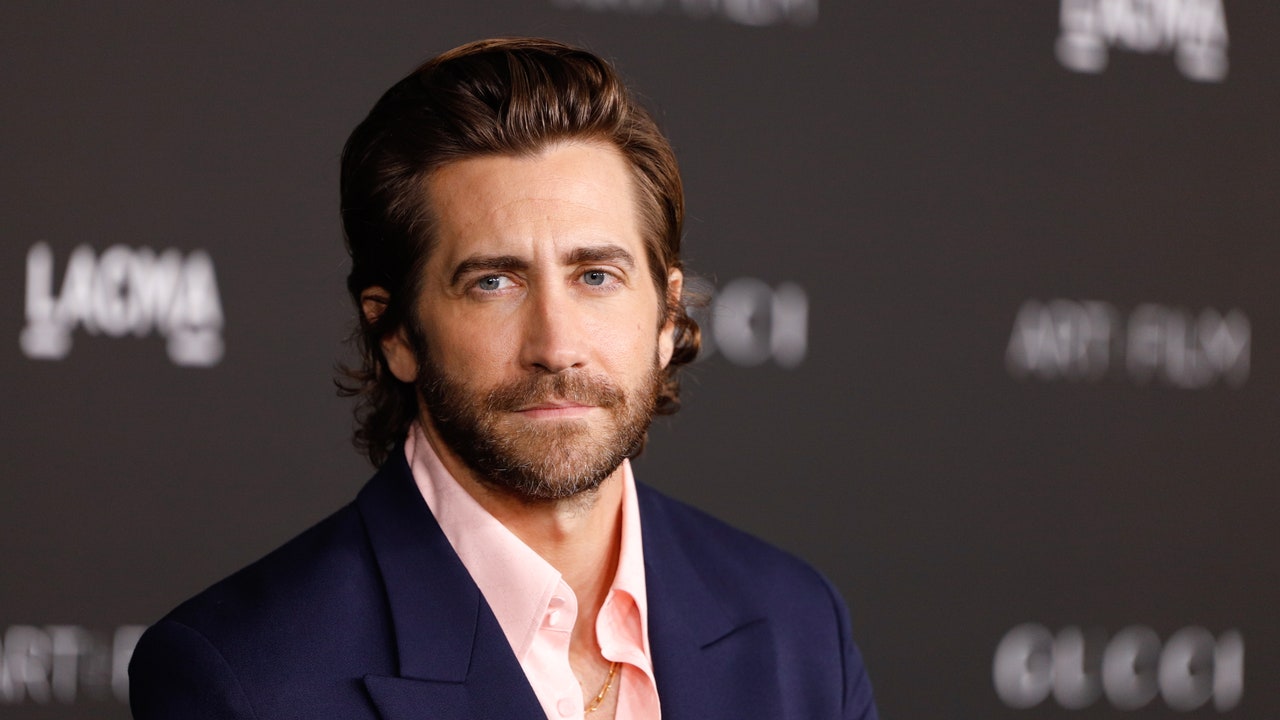Jake Gyllenhaal Addresses the Reaction To Taylor Swift’s ‘All Too Well’ for the First Time

[ad_1]
Jake Gyllenhaal remembers it all too well.
The scene: It’s November 2021, and Taylor Swift’s re-record of Red has just been released. To accompany the 10-minute version “All Too Well,” her emotional trainwreck of a song, Swift reveals a short film she directed starring Sadie Sink and Dylan O’Brien. It is immediately and widely accepted that Gyllenhaal, who Swift dated for about 3 months from 2010-2011, is the villain of the story despite no direct confirmation from the singer herself. (Although, the evidence does add up…)
Jokes and memes about a Gyllenhaal reckoning flood the internet alongside think pieces debating at what point an age gap is inappropriate. (Swift was 20 when they dated; he was 29.) The whereabouts of a certain scarf start trending. Even Dionne Warwick chimes in to the conversation, tweeting, “If that young man has Taylor’s scarf he should return it.”
Content
This content can also be viewed on the site it originates from.
At the time, Jake Gyllenhaal didn’t comment on the reaction—though he did turn off his Instagram comments, the only public sign that he’d received the loud-and-clear “fuck you” from Swift’s fanbase. But in a new interview with Esquire, published on February 17, the actor responds for the first time: “It has nothing to do with me. It’s about her relationship with her fans,” he says. “It is her expression. Artists tap into personal experiences for inspiration, and I don’t begrudge anyone that.”
While Gyllenhaal claims the reaction hasn’t been hard on him, he does expand a bit more after the writer points out that the actor’s comments had been turned off. “At some point, I think it’s important when supporters get unruly that we feel a responsibility to have them be civil and not allow for cyberbullying in one’s name,” he says. “That begs for a deeper philosophical question. Not about any individual, per se, but a conversation that allows us to examine how we can—or should, even—take responsibility for what we put into the world, our contributions into the world. How do we provoke a conversation? We see that in politics. There’s anger and divisiveness, and it’s literally life-threatening in the extreme.”
He continues, “My question is: Is this our future? Is anger and divisiveness our future? Or can we be empowered and empower others while simultaneously putting empathy and civility into the dominant conversation? That’s the discussion we should be having.”
So there you have it: A vague roundabout response that, sorry, could have worked as a monologue for O’Brien’s character in the “All Too Well” short film. When life imitates art! And no, he hasn’t listened to the album.
[ad_2]
Source link




